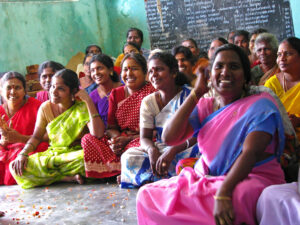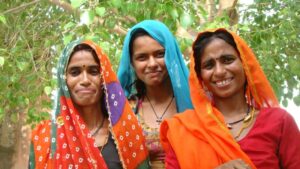RURAL AREAS WHERE WOMEN STILL DO NOT USE PADS
Breaking the Silence on Menstrual Hygiene in Rural India
In rural India, menstrual hygiene management (MHM) remains a significant challenge, impacting millions of women and girls. Despite various health initiatives, a startling 43% of Indian women still do not have access to sanitary pads, highlighting the pervasive issue of period poverty and its implications on health and dignity.

The Reality of Menstrual Hygiene in Rural Areas
Regions such as Bihar, Rajasthan, Uttar Pradesh, Madhya Pradesh, and Odisha are particularly affected by the lack of menstrual hygiene. Economic constraints, cultural taboos, and lack of access to affordable sanitary products force many women to rely on unhygienic methods like cloth or other alternatives. This not only affects their health but also limits their participation in daily activities, including education and work.
In many of these regions, traditional beliefs and myths surrounding menstruation exacerbate the problem. Menstruating women are often considered impure and are subjected to various restrictions, including being barred from entering kitchens and temples. These cultural taboos perpetuate a culture of silence, preventing women from seeking help and discussing their menstrual health openly.
Health Implications
Poor menstrual hygiene management is linked to various health issues, including fungal infections, urinary tract infections, and reproductive tract infections. Women from the highest wealth quintile are more than four times as likely to use a hygienic method as women from the lowest wealth quintile. The COVID-19 pandemic has further exacerbated these disparities, reducing incomes and disrupting supply chains, making it even harder for women to access menstrual products.
The health implications of poor menstrual hygiene are severe. Infections resulting from the use of unhygienic materials can lead to chronic reproductive health issues, which, in turn, can affect women’s overall well-being and productivity. Furthermore, the stigma associated with menstruation often prevents women from seeking medical help when they experience menstrual health problems.

Government and Community Initiatives
Government programs, such as the free sanitary napkin distribution under the Swachh Bharat Mission, aim to improve access to menstrual hygiene products. The Rajasthan government’s allocation of about Rs. 200 crores to the ‘Free Medicine Scheme’ includes a firm emphasis on the dispensation of sanitary napkins. However, the implementation of these initiatives often faces hurdles like an unsettled supply chain and limited awareness among frontline workers.
To address these challenges, community-driven efforts are also critical. Training adolescent girls and women to use sustainable products like cloth pads and conducting awareness campaigns about effective hygiene practices are essential steps. Additionally, social and behavior change communication (SBCC) strategies are vital in dispelling myths and taboos surrounding menstruation.
One effective approach is integrating menstrual hygiene education into school curriculums. Educating young girls about menstruation and how to manage it hygienically can empower them to take control of their health. Furthermore, engaging boys in these discussions can help normalize menstruation and reduce the stigma associated with it.
Breaking the Stigma
Menstruation remains a topic shrouded in stigma and silence. To change this, comprehensive health education must be institutionalized, enabling young girls to access reliable information on menstrual health. Engaging men and boys in conversations about menstruation is crucial to normalize the discourse and foster a supportive environment.
Breaking the stigma requires a multifaceted approach. First, it’s essential to create safe spaces where women and girls can discuss their menstrual health without fear of judgment. Second, leveraging media and popular culture to challenge menstrual myths and promote positive messages about menstruation can help shift public perceptions.
The participation of communities, especially men, in MHM is essential. Not just girls, boys too need to be educated about menstruation and reproductive health and empowered to talk comfortably and candidly about periods. Engaging men and boys from a young age is critical to normalize the discourse around menstruation for everyone, regardless of their gender. The culture of silence and lack of acknowledgment must be shattered through well-integrated social and behavior change campaigns that encourage conversations and break down myths around menstruation.
Reference
UN Women on Menstrual Hygiene: https://www.unwomen.org/en/news/stories/2021/5/feature-menstrual-hygiene-day-2021
Women’s Web: Understanding Menstrual Hygiene: https://www.womensweb.in/2020/01/menstrual-hygiene-management-january20wk4mad/
Medindia: Menstrual Hygiene in India: https://www.medindia.net/news/healthwatch/menstrual-hygiene-awareness-still-low-in-rural-india-195298-1.htm
DNA India: Menstrual Hygiene Challenges: https://www.dnaindia.com/health/report-43-of-indian-women-do-not-have-access-to-sanitary-pads-2786357
Deccan Chronicle: Survey on Sanitary Pads Access: https://www.deccanchronicle.com/nation/current-affairs/140218/43-per-cent-of-indian-women-dont-have-access-to-sanitary-pads-survey.html
Join the Movement
At Nevex, we are dedicated to addressing period poverty and improving menstrual hygiene in rural India. We believe that every woman and girl deserves to manage her periods with dignity and health. Our initiatives focus on providing access to affordable menstrual products, conducting educational workshops, and advocating for policies that support menstrual health.
We invite you to join us in this mission. Together, we can empower women and girls to manage their periods with dignity and health, breaking down barriers and fostering a more equitable society. By supporting Nevex, you can help us reach more communities and make a tangible difference in the lives of women and girls across India.
Visit [Nevex.in](https://nevex.in) and be part of the movement towards a better, more hygienic future for all women in India. 🌸
By expanding your involvement in menstrual hygiene advocacy, you contribute to a future where no woman or girl is held back by her period. Let’s work together to ensure that every woman can manage her menstrual health safely and with dignity.
